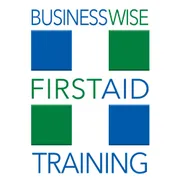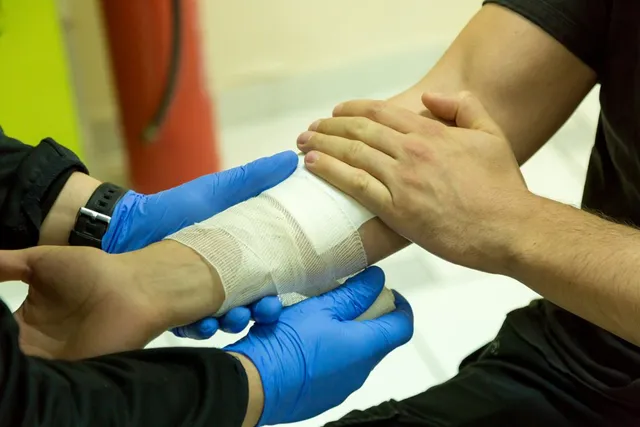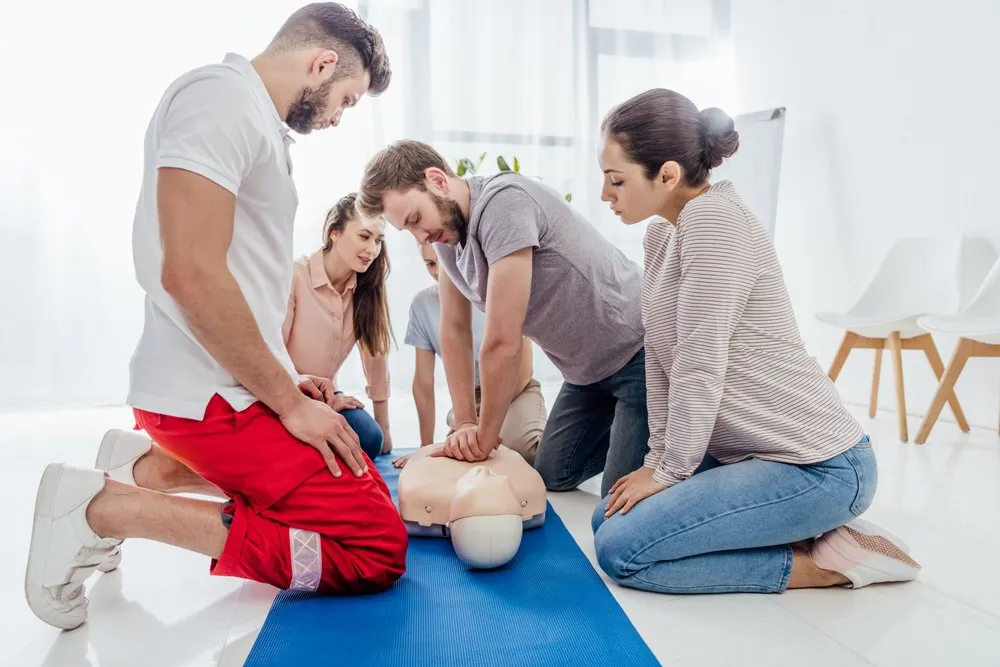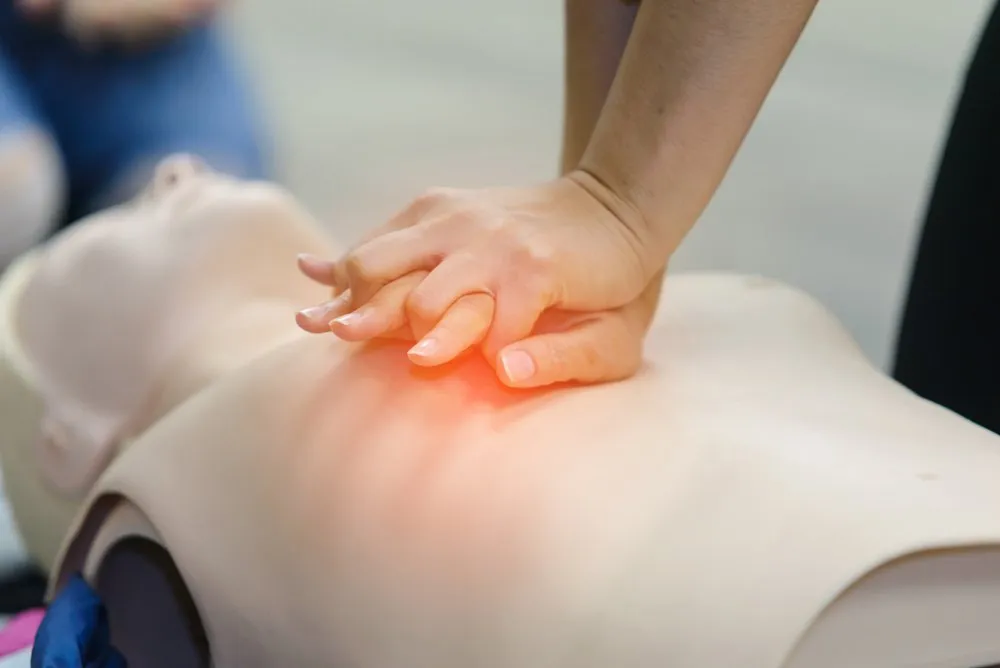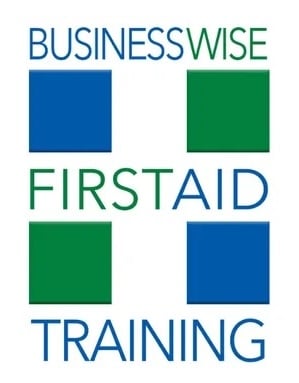First aid is a crucial skill that empowers individuals to provide immediate assistance in the event of an injury or sudden illness. Whether at home, work, or in public spaces, knowing how to respond effectively can make a life-saving difference.
For some people working in health and disability, it is necessary for them to get first aid training to qualify for the job.
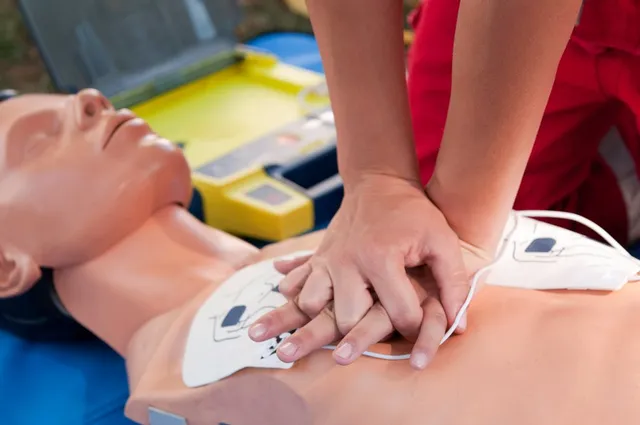
In this guide, you will learn about first aid and other key elements associated.
What is First Aid?
First aid refers to the initial care given to someone who is injured or falls ill before professional medical help arrives. The primary goals are to preserve life, prevent the condition from worsening, and promote recovery. First aid can be administered by anyone, making it an essential skill for individuals of all backgrounds.
The Importance of First Aid
The significance of first aid cannot be overstated. Prompt and appropriate first aid can mean the difference between life and death, particularly in situations where emergency services may not arrive immediately. Beyond preserving life, first aid helps alleviate pain, reduce the severity of an injury, and contribute to a faster recovery.
Who Should Get First Aid Training?
First aid training is a valuable skill set that everyone should consider acquiring, regardless of their background or occupation. While certain professions, such as healthcare workers, lifeguards, and first responders, inherently require first aid training, its importance extends far beyond these roles.
Parents and Caregivers
Parents and caregivers are among the primary individuals who can greatly benefit from first aid training. Children are naturally curious and prone to accidents, and having the knowledge to respond quickly and appropriately can be crucial in ensuring their well-being. From minor cuts and bruises to more serious incidents, parents equipped with first aid skills can provide immediate care until professional help arrives.
Teachers and Educational Staff
Educators spend a significant amount of time with students, making first-aid training essential in schools. Whether addressing playground injuries, allergic reactions, or sudden illnesses in the classroom, teachers who undergo first aid training contribute to creating a safer learning environment.
Workplace Employees
In the workplace, first aid training is not only advisable but often a legal requirement. Employees in various industries should be prepared to respond to injuries or medical emergencies that may occur on the job. From office settings to construction sites, having a team trained in first aid ensures a rapid and effective response in case of accidents.
Community Members
Beyond specific professions, every member of a community can benefit from first aid training. In everyday life, emergencies can happen anywhere – at home, in public spaces, or during recreational activities. Being trained in first aid allows individuals to step in and assist until professional medical help arrives, potentially saving lives.
Sports Coaches and Athletes
Sports enthusiasts, coaches, and athletes should also consider first-aid training. In the dynamic environment of sports, injuries are not uncommon. Coaches equipped with first aid skills can provide immediate assistance to injured players, facilitating a quicker recovery and reducing the risk of complications.
What’s Covered in First Aid Training?
The following is a general guide only, before enrolling, you should always check what’s included in your course.
CPR (Cardiopulmonary Resuscitation)
- Recognising cardiac emergencies.
- Performing chest compressions and rescue breaths.
- Using automated external defibrillators (AEDs).
Wound Care
- Cleaning and dressing wounds.
- Controlling bleeding.
Choking Response
- Recognising choking emergencies.
- Administering back blows and chest thrusts.
Burn Management
- Assessing burn severity.
- Administering first aid for burns.
Fracture and Sprain Care
- Recognising fractures and sprains.
- Applying splints and providing support.
Medical Emergencies
- Identifying signs of stroke, heart attack, and other medical emergencies.
- Administering appropriate first aid.
Shock Response
- Identifying signs of shock.
- Providing care for shock victims.
Poisoning and Allergic Reactions
- Recognising symptoms of poisoning.
- Administering first aid for poison ingestion.
- Administering an Adrenaline auto-injector for allergic reactions.
Business Wise First Aid Training is a leading first aid, CPR and child care training provider in Newcastle, NSW, Australia.
